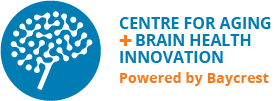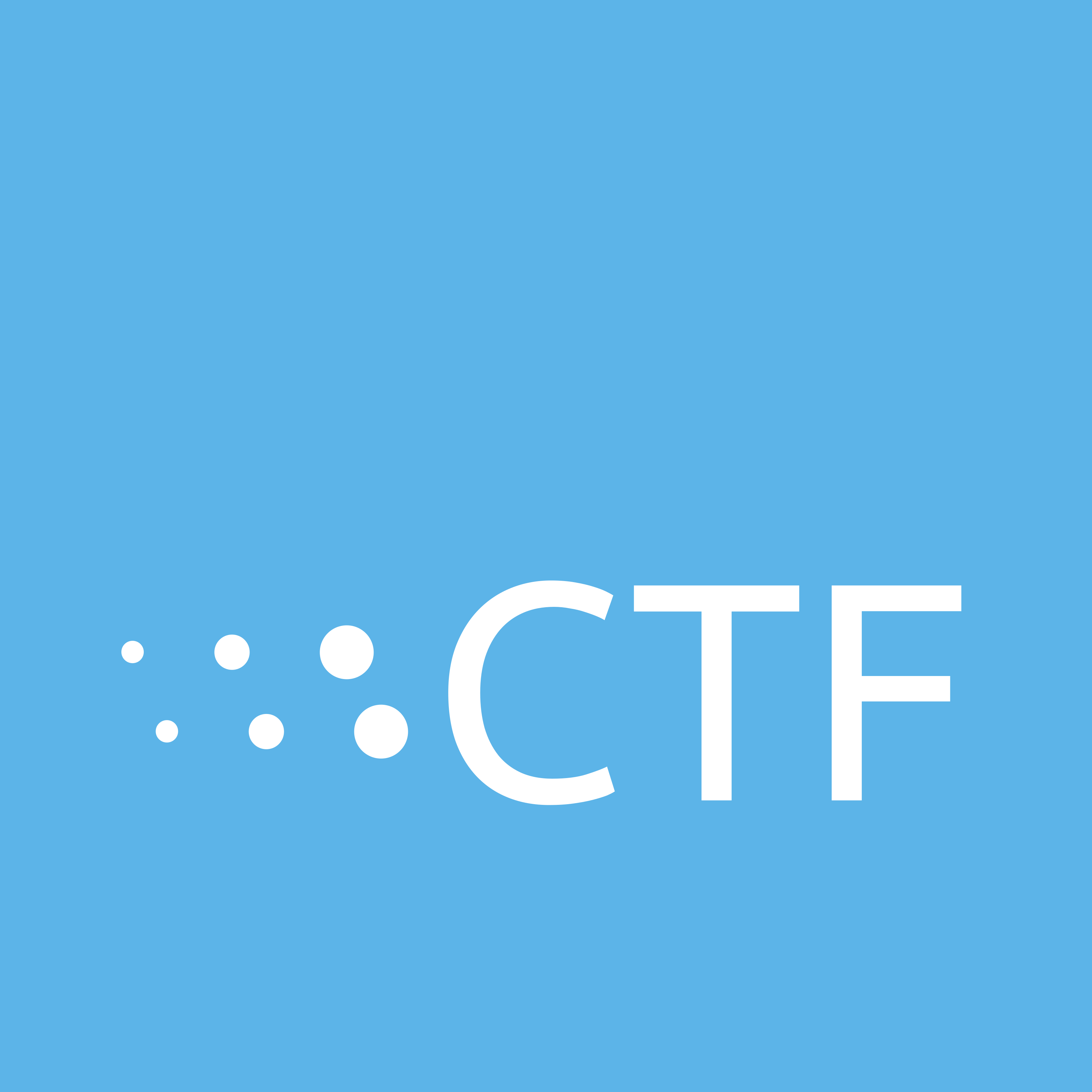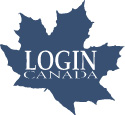
Aging and Brain Health: Mental Health and Well-being – Clinical Pre-Conference Workshops
ALL WORKSHOPS ARE CANCELLED - please see notice here
Learn about the latest treatments for mental health and healthy aging at our one-day workshops on Sunday, March 8,
2020. These workshops will be held at Baycrest, 3560 Bathurst St., Toronto.
Lunch will be provided.
WORKSHOP OPTION 1
Interventions for Memory and Aging: A Train-the-Trainer Workshop
Target audience: This workshop is designed for clinicians and students who work with older adults.
Description: Participants will learn about age-related memory changes, health and lifestyle factors that affect memory,
and strategies that can be used to optimize memory function. Drawing on content from Baycrest’s Memory and Aging
Program® for older adults with normal age-related memory changes, workshop participants will learn how to deliver
evidence-based memory interventions.
Presenters:
Dr. Angela Troyer is the professional practice chief of psychology and program director of neuropsychology and
cognitive health at Baycrest. She is cross-appointed as an assistant professor at the University of Toronto’s department
of psychology. She received her Ph.D. in neuropsychology from the University of Victoria, and completed a postdoctoral
research fellowship at Baycrest’s Rotman Research Institute. She has worked as a psychologist at Baycrest since 1997,
where she developed and has since implemented the Memory and Aging Program®. She also provides clinical
neuropsychological assessment services. She has an active research program in the area of assessment and intervention
of memory changes associated with normal aging and early cognitive disorders.
Dr. Susan Vandermorris is a psychologist in the neuropsychology and cognitive health program at Baycrest. She received
her Ph.D. in clinical neuropsychology from the University of Victoria, and completed a postdoctoral fellowship in
cognitive neuroscience at Baycrest’s Rotman Research Institute. She presently runs the Memory and Aging Program®
and provides clinical neuropsychological assessment services to older adults. Her research involves applications of
neuropsychological assessment and intervention to improve diagnostic accuracy and enhance daily functioning.
Option 1 Schedule
| 8:30 a.m. - 9:00 a.m. | Registration opens |
| 9:00 a.m. - 10:30 a.m. |
Benefits of memory interventions for older adults Normal age-related memory changes |
| 10:30 a.m. - 10:45 a.m. | Break |
| 10:45 a.m. - 12:15 p.m. |
Health and lifestyle factors that affect memory Memory aids and strategies |
| 12:15 p.m. - 1:15 p.m. | Lunch |
| 1:15 p.m. - 3:00 p.m. |
Memory aids and strategies Putting together an intervention protocol |
| 3:00 p.m. - 3:15 p.m. | Break |
| 3:15 p.m. - 4:30 p.m. |
Facilitating behaviour change Common challenges Closing remarks |
WORKSHOP OPTION 2
Changing Minds: The Impact of Gognitive Behavioural Therapy (CBT) on Mood and Cognition in Older Adults
Target audience: This workshop is aimed at licensed health care professionals and students, including occupational
therapists, social workers, psychologists, nurses, physicians, and other health care professionals working with older
adults with mood disorders.
Description: This workshop will cover the epidemiology and phenomenology of depression in older adults and the
underlying neurocognitive mechanisms, as well as how to tailor CBT to older adults with depression. This workshop will
emphasize the therapy’s practical application, which is grounded in neuroscience theory, through the use of clinical
cases.
Presenter:
Dr. Nasreen Khatri, PhD, CPsych, is a registered clinical psychologist, gerontologist and mood disorders researcher. A
graduate of McGill University, she completed her clinical internship and CIHR-funded post-doctorate at CAMH. From
2004 to 2012, she led the Mood and Related Disorders Clinic and founded the CBT service at Baycrest. In 2012, she
joined the RRI where she tailors non-drug treatments for mood disorders, including CBT, to older adults. Dr. Khatri’s
research has been funded continuously since 2006 (including by CIHR, ASC, SSHRC, MOHLTC) and published in peer-
reviewed academic journals and book chapters. Recent honours include the Women of Baycrest Innovators in Research
Award (2013) and the Government of Ontario Leading Women, Building Communities Award (2016). Dr. Khatri remains
clinically active and is often asked to communicate research findings to the public. She has been cited by numerous
media outlets (including CBC - The National, the Globe and Mail, the National Post, Wall Street Journal). She is a content
expert for health app and website development, including the Senior Friendly 7 (SF7) Toolkit, and a mental health
advisor (e.g., Bell Let’s Talk).
Option 2 Schedule
| 8:00 a.m. - 9:00 a.m. | Registration opens |
| 9:00 a.m. - 10:30 a.m. |
Epidemiology and Phenomenology of Depressions in Older Adults |
| 10:30 a.m. - 10:45 a.m. | Break |
| 10:45 a.m. - 12:15 p.m. |
Neurocognitive Mechanisms Underlying Depression in Older Adults: The Evidence |
| 12:15 p.m. - 1:15 p.m. | Lunch |
| 1:15 p.m. - 3:00 p.m. |
CBT for Depression: Tailoring Protocols for Older Adults |
| 3:00 p.m. - 3:15 p.m. | Break |
| 3:15 p.m. - 4:30 p.m. |
Tips and Suggestions: CBT Case Studies and Role Plays Q & A Closing remarks |
WORKSHOP OPTION 3
Introduction to Non-invasive Brain Stimulation for Treatment of Psychiatric and Neurological Disorders
Target audience: Psychiatrists, neurologists, and allied health professionals who want to know more about incorporating
brain stimulation into their clinical practice and researchers interested in learning these techniques for experimental
use. This workshop will appeal to anyone interested in understanding the strengths and limitations of these techniques,
which will assist in evaluating the burgeoning scientific literature.
Description: Non-invasive, brain stimulation techniques, including transcranial magnetic stimulation (TMS) and
transcranial direct current stimulation (tDCS), have entered routine clinical practice for the treatment of depression.
They are the subject of hundreds of ongoing clinical trials for other disorders. This one-day workshop will provide a
thorough overview of the theory and practice of brain stimulation as a treatment and as a research tool, including the
basic steps of administration and safety precautions. Participants will receive hands-on instruction and demonstrations
of several magnetic and electrical stimulation devices.
Presenters:
Dr. Jed Meltzer is a scientist at the Rotman Research Institute at Baycrest, assistant professor of psychology at the
University of Toronto, and Canada Research Chair in Interventional Cognitive Neuroscience. Dr. Meltzer’s research uses
magnetoencephalography (MEG), transcranial magnetic stimulation (TMS) and transcranical direct current stimulation
(tDCS) to investigate the neural mechanisms and multiple pathways responsible for understanding and producing
language, and to test novel treatments for disorders of language, memory, and motor function linked to stroke and
dementia.
Dr. Zafiris (Jeff) Daskalakis is professor of psychiatry at the University of Toronto, Temerty Chair in Therapeutic Brain
Intervention at the Centre for Addiction and Mental Health (CAMH), CAMH chief of general adult psychiatry, and co-
director of the Temerty Centre for Therapeutic Brain Intervention in the Campbell Family Mental Health Research
Institute at CAMH. With expertise in the neurophysiology of severe psychiatric disorders, the Temerty Centre uses
magnetic brain stimulation to study the role of cortical inhibition and plasticity as potential pathophysiological
mechanisms in schizophrenia, depression and obsessive-compulsive disorder. Dr. Daskalakis also conducts treatment
studies using repetitive transcranial magnetic brain stimulation (rTMS) and magnetic seizure therapy (MST) for
refractory symptoms in these disorders.
Option 3 Schedule
| 9:00 a.m. -10:00 a.m. | Introduction to Brain Stimulation: Brief history, Basic principles, and mechanisms Of action of repetitive Transcranial Magnetic Stimulation (rTMS) and Transcranial Direct Current Stimulation (TDCS) |
| 10:00 a.m. - 10:45 a.m | rTMS for the Acute Treatment of Depression: Clinical Recommendations, Current Research, and Example Case Studies |
| 10:45 a.m. - 11:00 a.m. | Break |
| 11:00 a.m. - 12:00 p.m. | Current research and future directions for NIBS beyond depression: Applications to psychiatric and neurological disorders, and cognitive enhancement in healthy people. |
| 12:00 p.m. - 12:45 p.m. | Lunch |
| 12:45 p.m. - 2:00 p.m. | Live demonstration, basics of TMS: Introduction to machine components, recording muscle responses (EMG), finding stimulation spot and motor threshold. |
| 2:00 p.m. - 2:15 p.m. | Break |
| 2:15 p.m. - 3:30 p.m. | Live demonstration, rTMS and paired-pulsed paradigms: Repetitive and theta-burst stimulation, active motor threshold, long-interval cortical inhibition, cortical silent period, ipsilateral silent period. Demonstration of deep TMS with H-coil. |
| 3:30 p.m. - 4:30 p.m. | Live demonstration, TDCS: Applying electrodes for stimulating with conventional sponge TDCS. Application of HD-TDCS for more focal stimulation of cortical regions. Combination with therapy. |
| 4:30 p.m. - 5:00 p.m. | Q & A |
Privacy Statement | Disclaimer
© 2022 Rotman Research Institute, Baycrest. All Rights Reserved.







